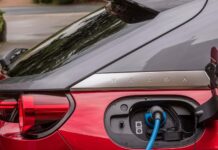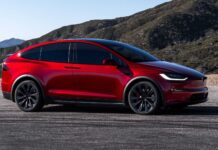[ad_1]
The Kia EV6, in the all-wheel-drive GT-Line version with a 77.4 kWh battery, has achieved a very good result in the Bjørn Nyland 1,000 km challenge.
The car was able to cover the distance in 9 hours and 55 minutes (after deducting some time losses), at an average speed of over 100 km/h (62 mph), including charging.
That’s an outstanding result, especially considering the low temperature of 6°C, which increases energy consumption and lowers range (requires more charging).
The car had to stop for charging five times, but because the very fast charging capabilities (at up to over 230 kW), those were fairly shore breaks.
Bjørn Nyland notes lack of time to really go buy and eat something during short charging stops. He even called the Kia EV6 the charging king. Frankly, the charging capabilities were key to the result, as the range of the Kia EV6 is not as high as some of the Tesla cars with a comparable time.
Speaking of charging, Bjørn Nyland has a theory (9:00) how to maintain the highest possible charging power as long as possible. He says that the trick is to not run the HVAC (while charging) for maximum battery cooling so it will not overheat (or at least not as quickly). Battery cooling can be enhanced that way, because normally HVAC cabin system would be prioritized over the battery.
If true, that should be the case also for the Hyundai Ioniq 5, and other Hyundai Motor Group’s E-GMP-based BEVs.
When comparing the Kia EV6’s result with the Hyundai Ioniq 5 (see full report here) it’s 5 minutes quicker, despite much colder weather. The Kia EV6 has also a slightly bigger battery (77.4 kWh vs 72.6 kWh), which gives it a little better start.
When comparing the Kia EV6 with the top Tesla cars, we can see that Tesla’s main advantage is much lower energy consumption. It not only allows to have a greater initial range, but then also charge less along the way.
Anyway, the Kia EV6 beats almost all of the EVs on the market:

Test conditions:
- Start: 100% State of Charge (SOC)
- Temperatures: 6-7°C (6°C on average)
- Total time: 9 hours and 55 minutes
- Average speed (total): 100.8 km/h (63 mph)
- Average energy consumption: 263 Wh/km (423 Wh/mile)
- Number of stops for charging: 5
- Date / Notes: 15.11.2021
Charging stops:
- Charging: after 256 km (159 miles)
- Charging: after 363 km (226 miles)
- Charging: after 511 km (318 miles)
- Charging: after 661 km (411 miles)
- Charging: after 896 km (557 miles)
[ad_2]
Source link













